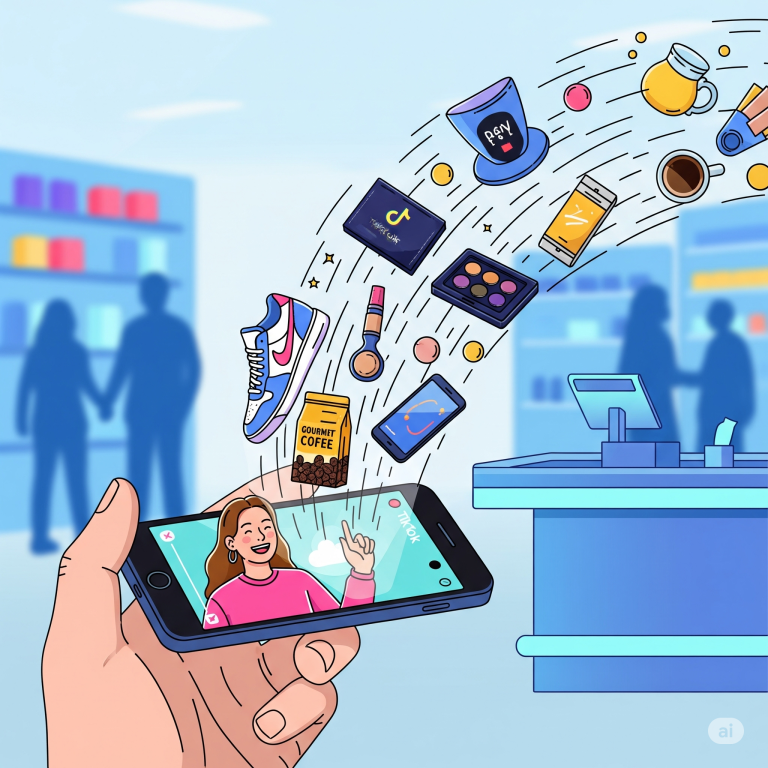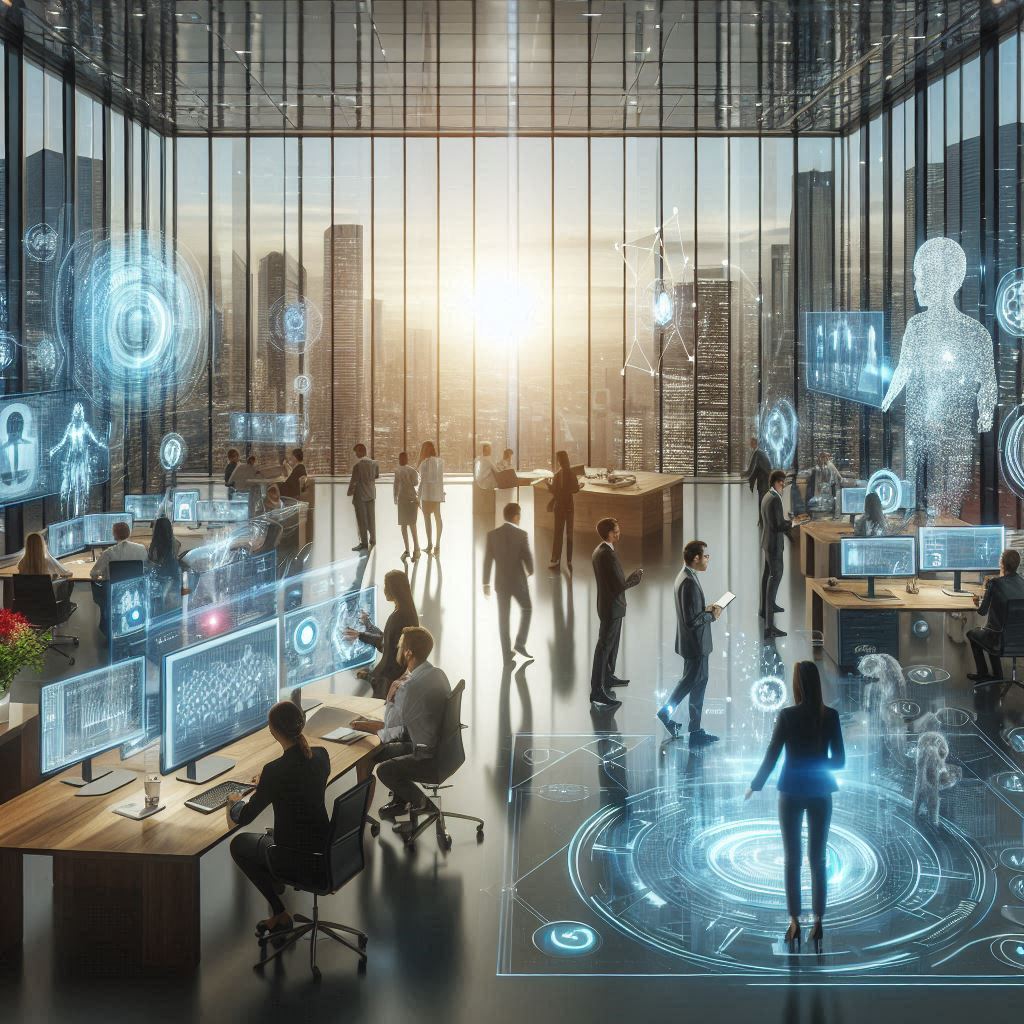
AI Assistants Are Taking Over Tasks—What It Means for Your Job
AI assistants are becoming a big part of the workplace, handling tasks that used to take up a lot of time. From scheduling meetings to answering emails, these smart systems can do things faster and more accurately than humans. In many offices, AI is already managing customer service, analyzing data, and even making decisions.
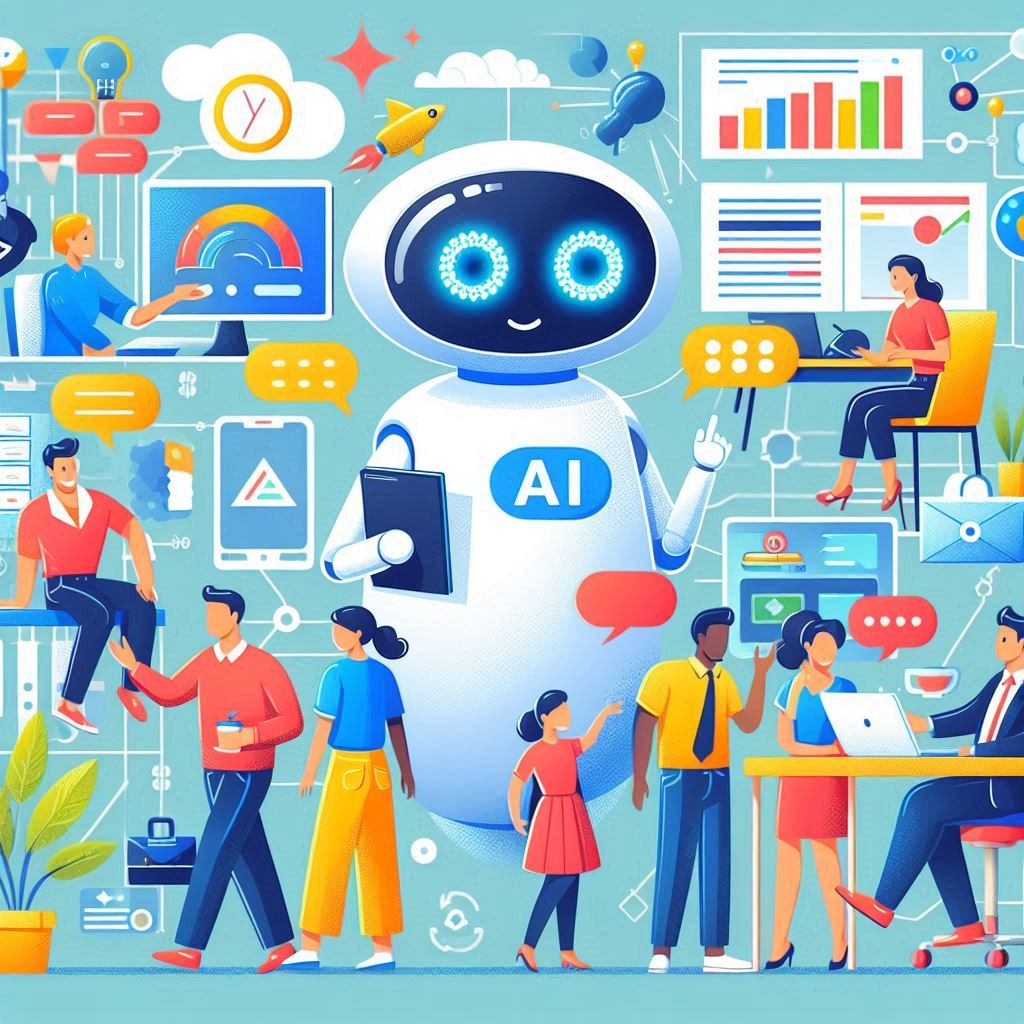
For workers, this means less time spent on repetitive tasks and more focus on creative or complex work. But it also raises concerns—will AI take jobs away? The truth is, AI is more likely to change jobs rather than completely replace them. People will still be needed to guide, manage, and work alongside AI.
The key to staying relevant in 2025 is learning how to work with AI, not against it. By improving skills like problem-solving and creativity, employees can make AI their assistant, not their replacement.
From Office to Factory: How Smart AI Is Changing the Way We Work
AI is transforming the way we work, from office jobs to factory floors. In offices, AI assistants help with emails, scheduling, and data analysis, making work faster and more efficient. Chatbots handle customer service, while smart software helps teams collaborate better.
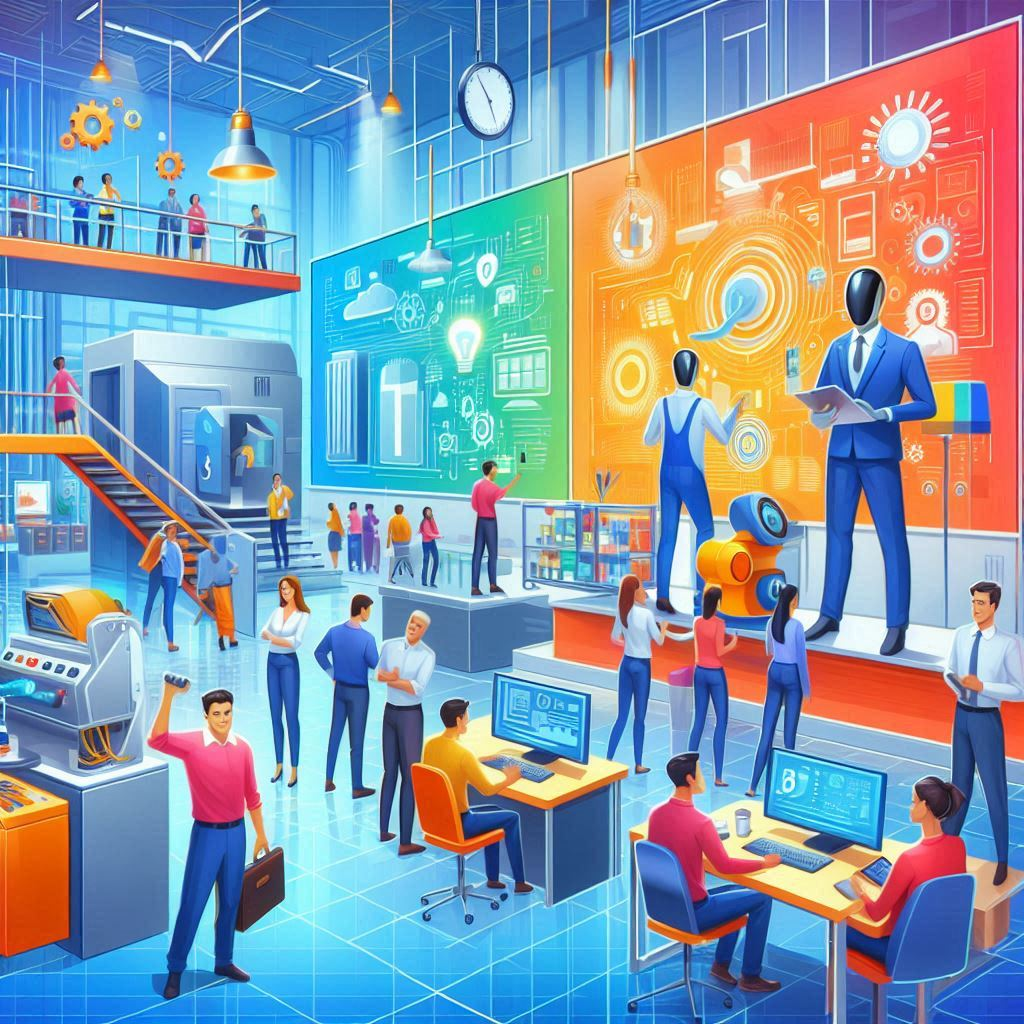
In factories, AI-powered robots and machines are taking over repetitive and dangerous tasks. They work 24/7 without breaks, increasing productivity and safety. Smart sensors and automation systems predict machine failures before they happen, reducing downtime.
But AI isn’t just about replacing jobs—it’s also creating new opportunities. Companies need people to manage, train, and improve AI systems. Workers are learning new skills to keep up with these changes.
As AI continues to grow, businesses and employees must adapt. The future of work will be a mix of human creativity and AI efficiency, making jobs smarter and workplaces more productive than ever before.
Will AI Replace You or Help You? The Future of Work in 2025
AI is changing the way we work, but does that mean it will take our jobs? The truth is, AI is more likely to help us than replace us. In 2025, AI agents are handling repetitive tasks like answering emails, scheduling meetings, and analyzing data. This means workers can focus on more creative and strategic work.
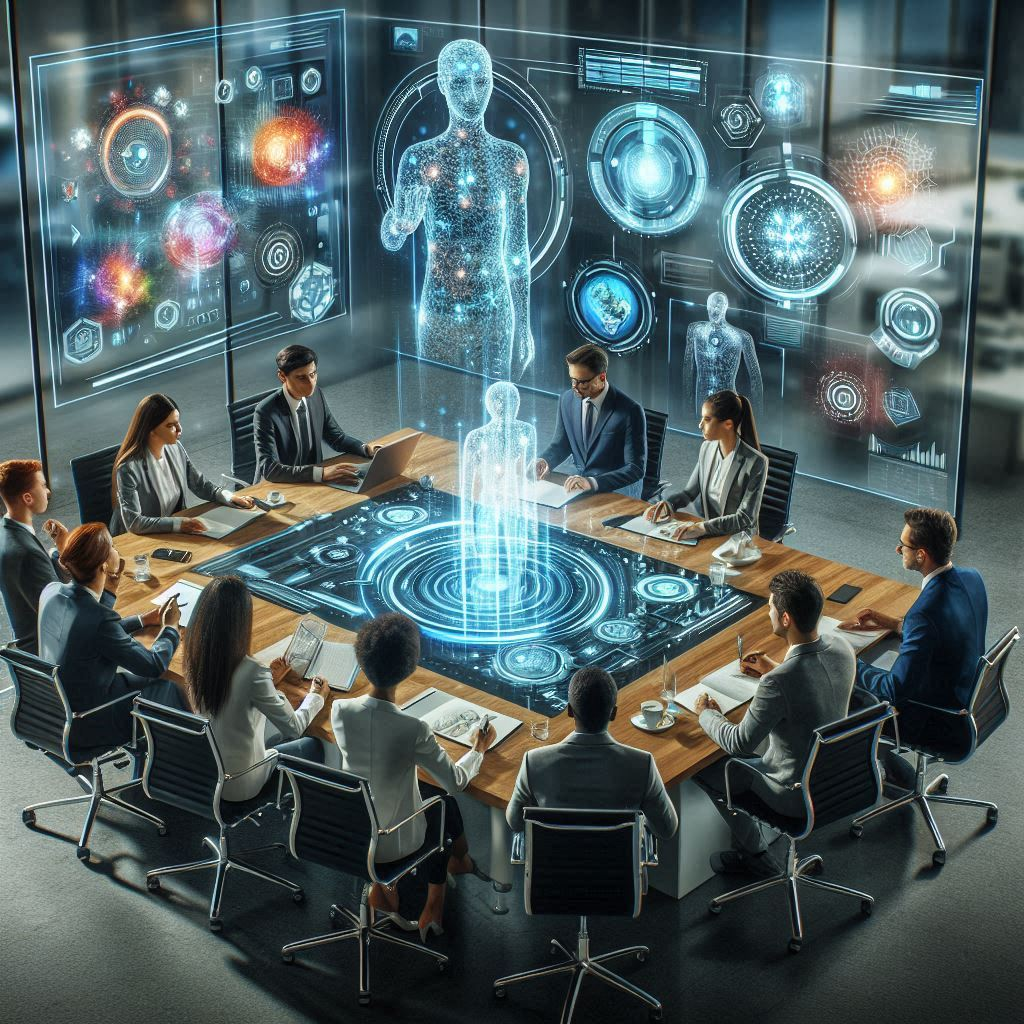
Many companies are using AI to improve efficiency, not to replace humans. For example, in healthcare, AI helps doctors diagnose diseases faster. In offices, AI chatbots assist customers while employees handle more complex issues.
However, some jobs will change. Workers need to adapt by learning new skills and working alongside AI. Instead of fearing AI, we should see it as a powerful tool that makes our work easier and more productive. The future of work isn’t about humans vs. AI—it’s about humans and AI working together.
Meet Your New AI Coworker: Smarter, Faster, and Always Online
Imagine having a coworker who never gets tired, never takes breaks, and works 24/7 without complaining. That’s exactly what AI agents are becoming in 2025! These smart digital assistants are taking over routine tasks like scheduling meetings, answering emails, and even handling customer service. They can analyze data, make decisions, and learn from mistakes—just like a human, but faster and more efficiently.
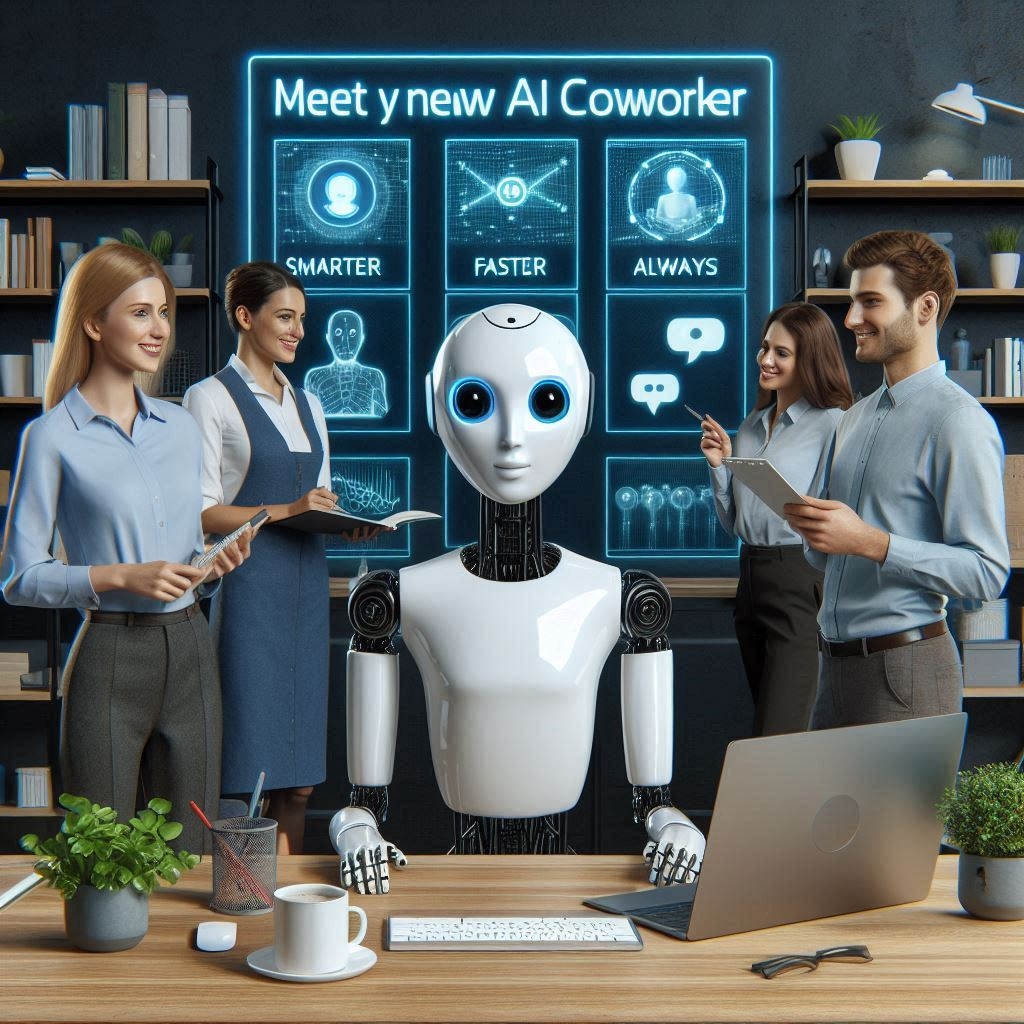
Many businesses are using AI agents to boost productivity and cut down on costs. Employees now have more time to focus on creative and strategic work while AI handles the repetitive stuff. But don’t worry—AI isn’t here to take your job; it’s here to help you work smarter!
With AI agents always online and ready to assist, the workplace is evolving fast. The big question is: Are we ready to fully embrace this new era of human-AI teamwork?
No More Boring Tasks! AI Agents Are Automating Everyday Work
In 2025, AI agents are making work easier by handling boring, repetitive tasks. Instead of spending hours on emails, data entry, or scheduling meetings, employees can focus on creative and important work. AI assistants can sort emails, analyze reports, and even manage customer support chats—all without human effort.
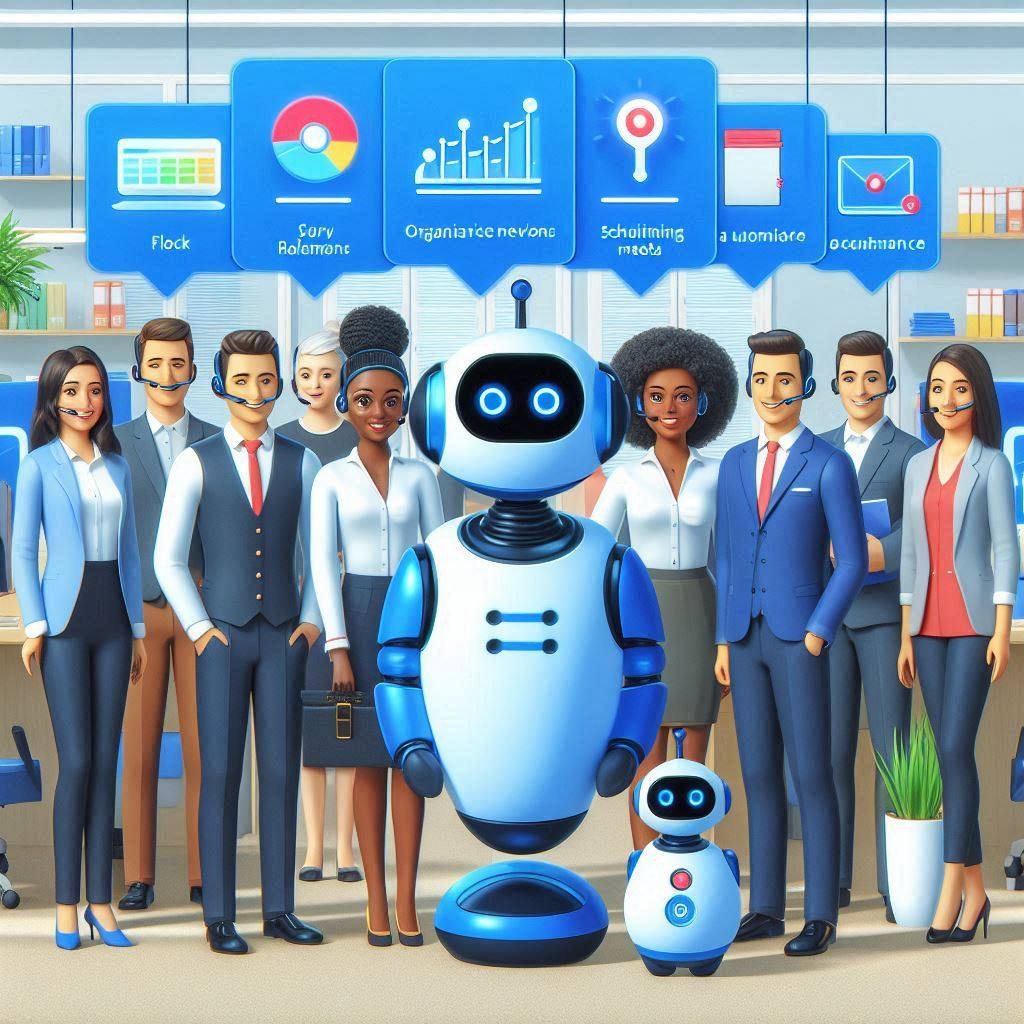
Many businesses are using AI-powered automation to speed up tasks and reduce mistakes. For example, in offices, AI tools help organize workflows, while in factories, smart robots handle assembly lines with precision. Even small businesses benefit by automating social media posts and answering customer questions instantly.
This shift means people can spend more time on problem-solving, teamwork, and innovation instead of routine work. While some worry about job loss, experts believe AI will create new opportunities by taking over the dull parts of jobs. In the future, AI won’t replace humans—it will work alongside them, making work life smoother and more enjoyable.
How AI Is Making Businesses Faster, Cheaper, and More Efficient
AI is changing the way businesses work, making everything faster, cheaper, and more efficient. In 2025, AI agents handle tasks like customer service, data analysis, and even decision-making. They work 24/7 without breaks, helping companies save time and money.
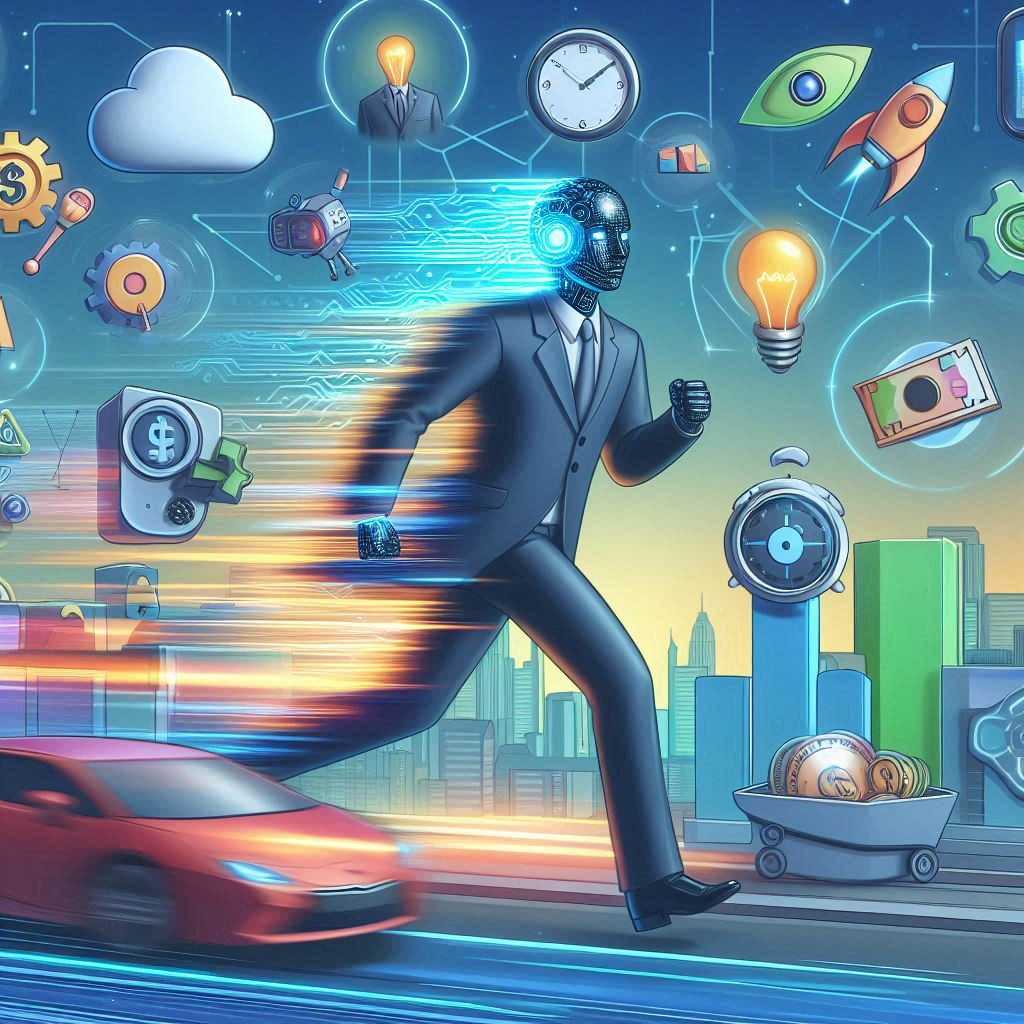
For example, AI chatbots quickly answer customer questions, reducing the need for large support teams. In factories, smart robots speed up production while cutting costs. AI-powered software helps businesses analyze data instantly, making better decisions faster.
Small businesses also benefit. AI tools handle emails, marketing, and scheduling, allowing owners to focus on growth. Companies no longer waste time on repetitive tasks—AI does them automatically.
Of course, AI isn’t perfect. Businesses must still monitor AI systems to avoid mistakes. But overall, AI is making work smoother, reducing costs, and boosting productivity. In 2025, companies that use AI smartly will stay ahead of the competition.
The Good and Bad of AI at Work—Should We Be Excited or Worried?
AI is changing the way we work, and it comes with both good and bad sides. On the bright side, AI agents can handle boring and repetitive tasks, making work faster and easier. They help businesses save time and money while allowing people to focus on creative and important work. AI can also reduce human errors and improve decision-making.
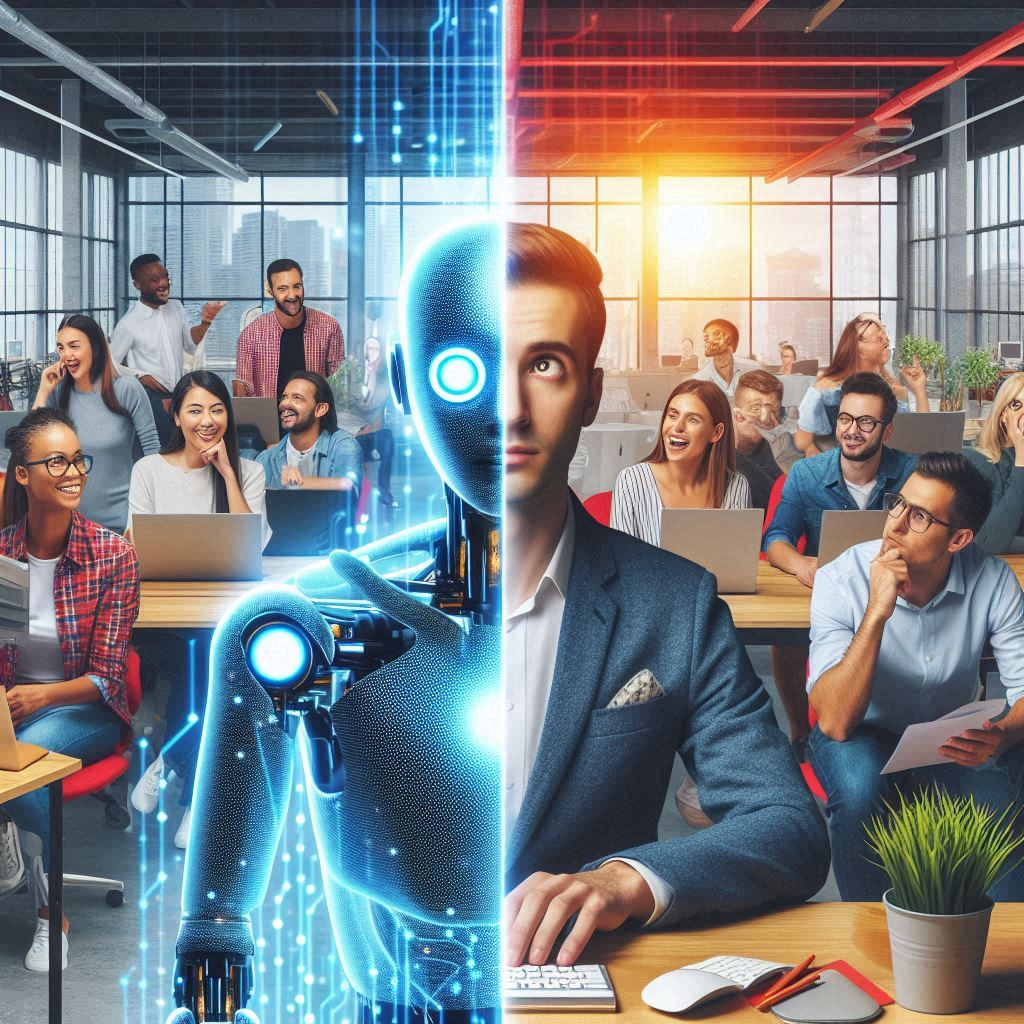
However, there are concerns too. Many people worry that AI might replace human jobs, leading to unemployment. Others fear that too much AI involvement could make workplaces feel less personal. There’s also the risk of mistakes if AI systems aren’t properly managed.
So, should we be excited or worried? The answer is both. AI can make work life better, but we need to be careful and use it wisely. The key is balancing technology with human skills to create a better future for everyone.
AI in the Workplace: More Free Time or More Job Pressure?
AI is changing the way we work, but is it making life easier or more stressful? In 2025, AI agents are handling many tasks, from answering emails to managing schedules and even making business decisions. This means workers have more free time to focus on creative and strategic work. Some people love it—they can get more done in less time without feeling overwhelmed.
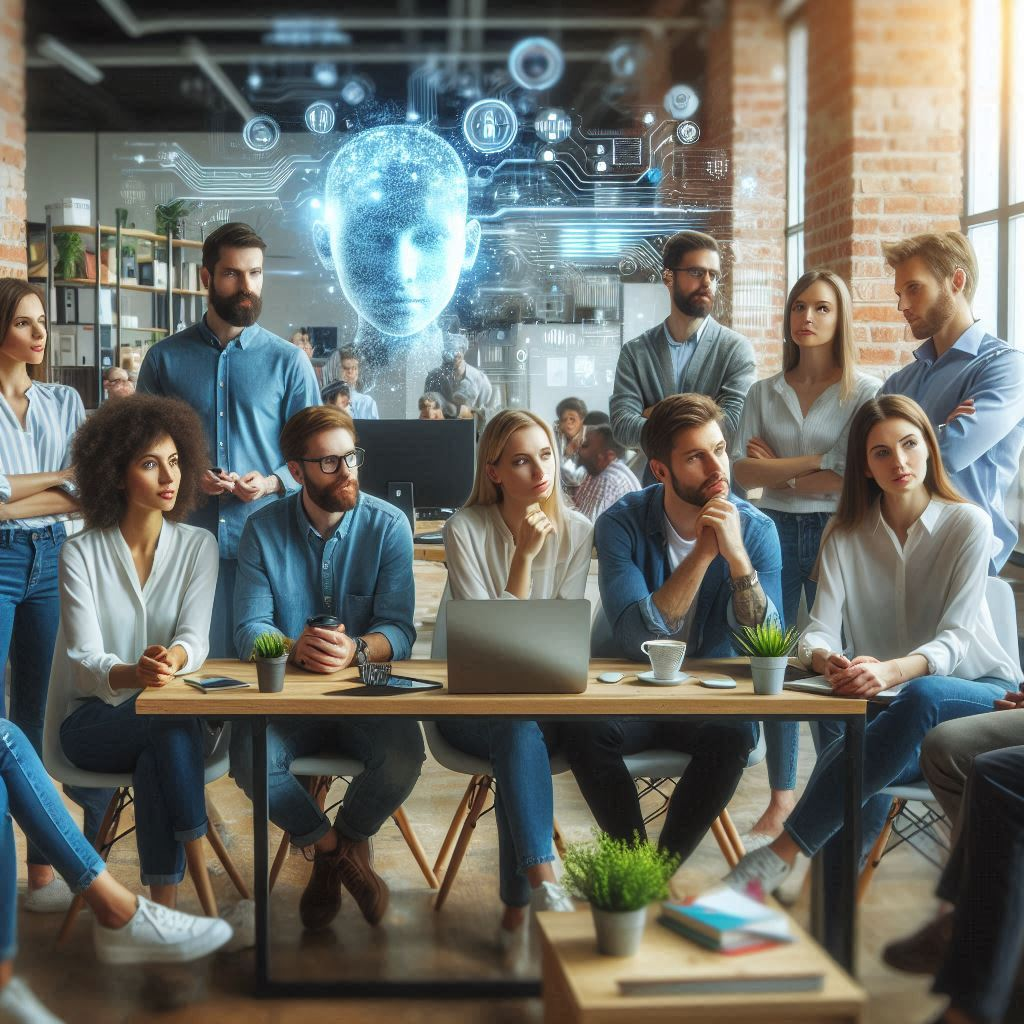
But not everyone feels the same way. With AI doing so much, companies expect employees to be more productive. The pressure to keep up with AI-powered systems can be stressful. Some worry about job security, while others struggle to adapt to new technologies.
The key is balance. If AI is used the right way, it can create a better work-life balance, reducing stress and boosting efficiency. But if mismanaged, it might just add more pressure. The future of AI at work depends on how we use it.
Robots, AI, and You: What the Workplace Looks Like in 2025
In 2025, the workplace will look very different thanks to robots and AI. These smart systems, known as AI agents, will handle a lot of tasks that humans used to do. Imagine a robot assistant helping you with your daily work, from answering emails to scheduling meetings. AI will also be working behind the scenes, analyzing data and making decisions faster than ever. This means that employees can focus more on creative and strategic work, leaving repetitive tasks to AI.
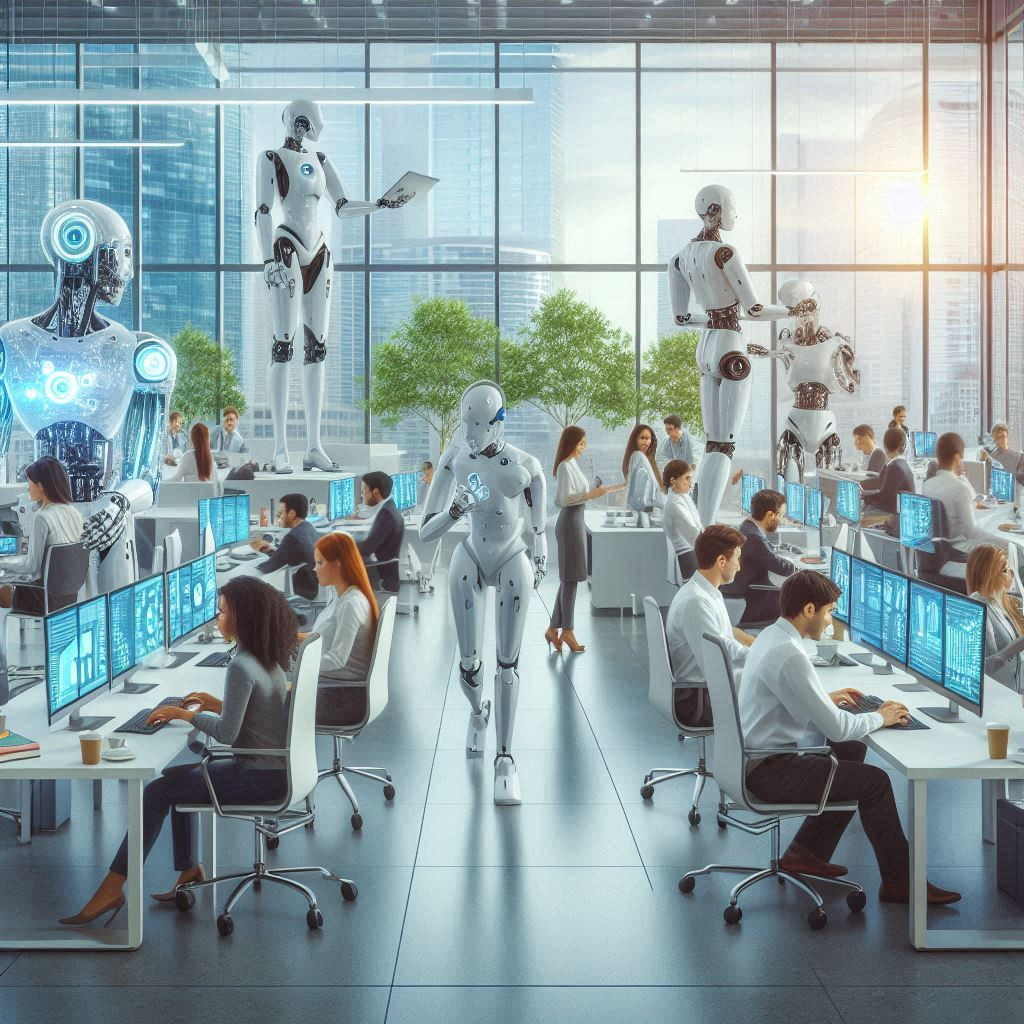
But how will this affect jobs? While some jobs may change or disappear, new opportunities will emerge for people who can work alongside AI. The key to thriving in this new workplace will be learning how to use these tools to your advantage. In the future, instead of being replaced by machines, you’ll work with them, making the workplace more efficient and innovative than ever before.
Smarter Than Ever: How AI Agents Are Becoming Essential at Work
AI agents are smarter than ever and quickly becoming essential in many workplaces. These intelligent systems can handle a variety of tasks, from answering emails to analyzing data and even managing customer service. They work faster and more accurately than humans in many cases, freeing up employees to focus on more creative and strategic tasks.
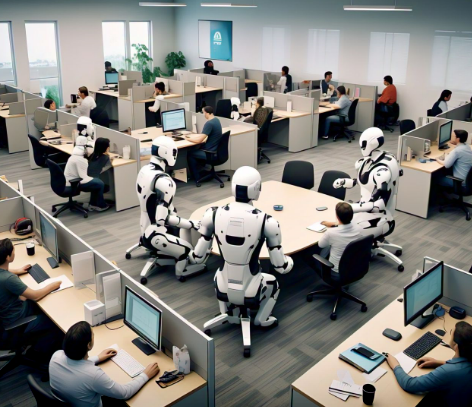
In 2025, we’ll see AI agents becoming even more capable, learning on the job and improving over time. They can now understand complex problems, offer solutions, and even interact with customers in ways that feel personal and human-like. Businesses are adopting these systems because they help save time and money while boosting efficiency.
While some worry that AI will take over jobs, the truth is, AI agents are designed to assist and support workers, not replace them. In fact, they create new opportunities for workers to focus on tasks that require emotional intelligence, creativity, and decision-making.

